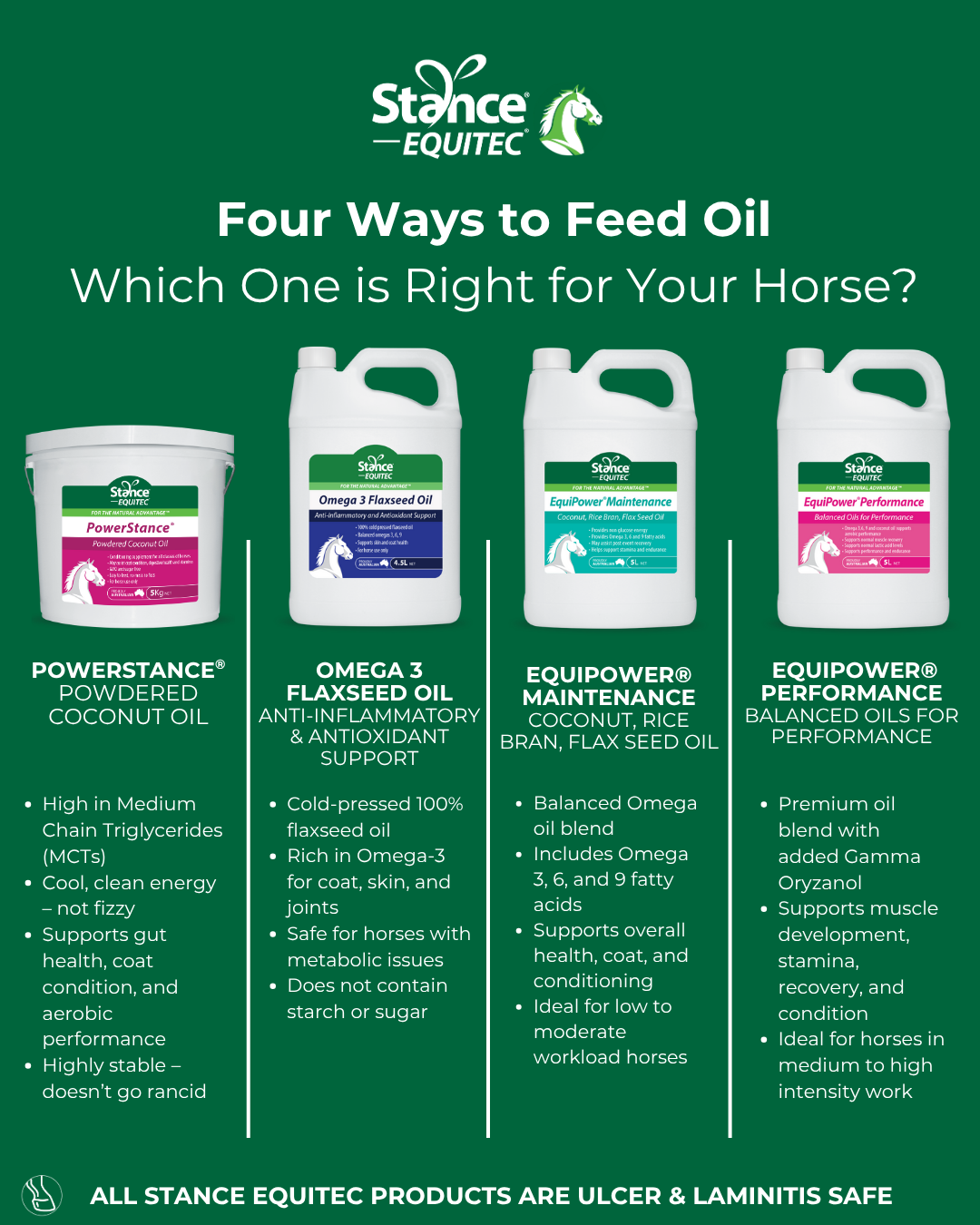For The Natural Advantage
For The Natural Advantage
Where To Buy
All Products
Categories
-
Appetite and Gut Support
-
Behaviour and Calming
-
Energy and Weight Gain
-
Hoof and Joint Support
-
Hydration Support
-
Immune and Respiratory Support
-
Performance Recovery
-
Skin and Coat Support
-
Trace Minerals and Vitamins
Disciplines
-
Performance
- Omega 3 Flaxseed Oil
- Turmericle® Golden Gel
- PowerStance®
- HemaSol®
- Ketagen®
- Impruval®
- UlcaBuf®
- Placid Rein PLUS®
- Respirite®
- Turmericle®
- ProMune®
- ProFlex®
- Placid Rein®
- OsmoPlex®
- MagnaSol®
- VitaStance®
- Equilibrium® Mineral Mix
- CoolStance®
- Clean Culture®
- MSM (Methlysulphonylmethane)
- Vitamin E + Selenium
- Lysine
- Glucosamine Sulphate
- Biotin Extra Strength
- Mycosorb® A+
- Chia Seed
- FlexiHemp®
- Hemp Hulls and Hearts
- SandBuster®
- EquiPower® Maintenance
- Vitamin E
- Vitamin C
- Aloe Vera Juice
- ToxFree® Toxin Binder
- Hepadine®
- GTP®
- EquiPower® Performance
- Equilibrium® B1 Cool Mix
-
Pleasure and Aged Horses
- PowerStance®
- Impruval®
- Equilibrium® Mineral Mix
- VitaStance®
- ProMune®
- Respirite®
- Turmericle® Golden Gel
- Cool Energy®
- UlcaBuf®
- ToxFree® Toxin Binder
- ProFlex®
- Placid Rein®
- OsmoPlex®
- Hepadine®
- Biotin Extra Strength
- Clean Culture®
- Turmericle®
- CoolStance®
- Aloe Vera Juice
- FlexiHemp®
- Omega 3 Flaxseed Oil
- Chia Seed
- Hemp Hulls and Hearts
- SandBuster®
- Mycosorb® A+
- MSM (Methlysulphonylmethane)
- Glucosamine Sulphate
- Equilibrium® B1 Cool Mix
-
Breeding and Youngstock
- PowerStance®
- GroStance®
- Equilibrium® Mineral Mix
- VitaStance®
- ProFlex®
- ProMune®
- Respirite®
- Cool Energy®
- Turmericle® Golden Gel
- UlcaBuf®
- Placid Rein®
- OsmoPlex®
- Impruval®
- Hepadine®
- Clean Culture®
- Biotin Extra Strength
- Turmericle®
- CoolStance®
- ToxFree® Toxin Binder
- Aloe Vera Juice
- FlexiHemp®
- Omega 3 Flaxseed Oil
- Chia Seed
- Hemp Hulls and Hearts
- SandBuster®
- Mycosorb® A+
- MSM (Methlysulphonylmethane)
- Lysine
- Glucosamine Sulphate
- Equilibrium® B1 Cool Mix
Pet Tec - For Companion Animals
- Turmericle® For Dogs
- Turmericle® Golden Gel For Dogs
- Stay Calm 4 Dogs®
- Stay Active 4 Dogs®
- Chia Seed
- Omega 3 Flaxseed Oil







